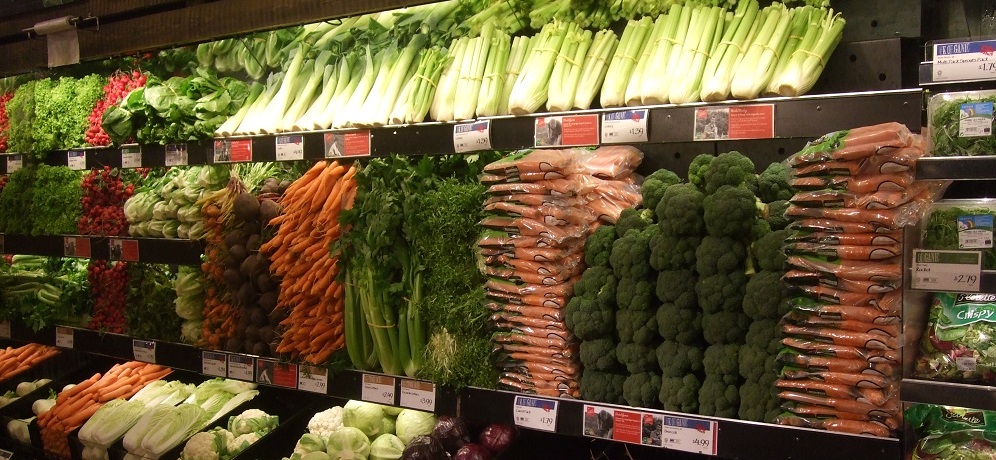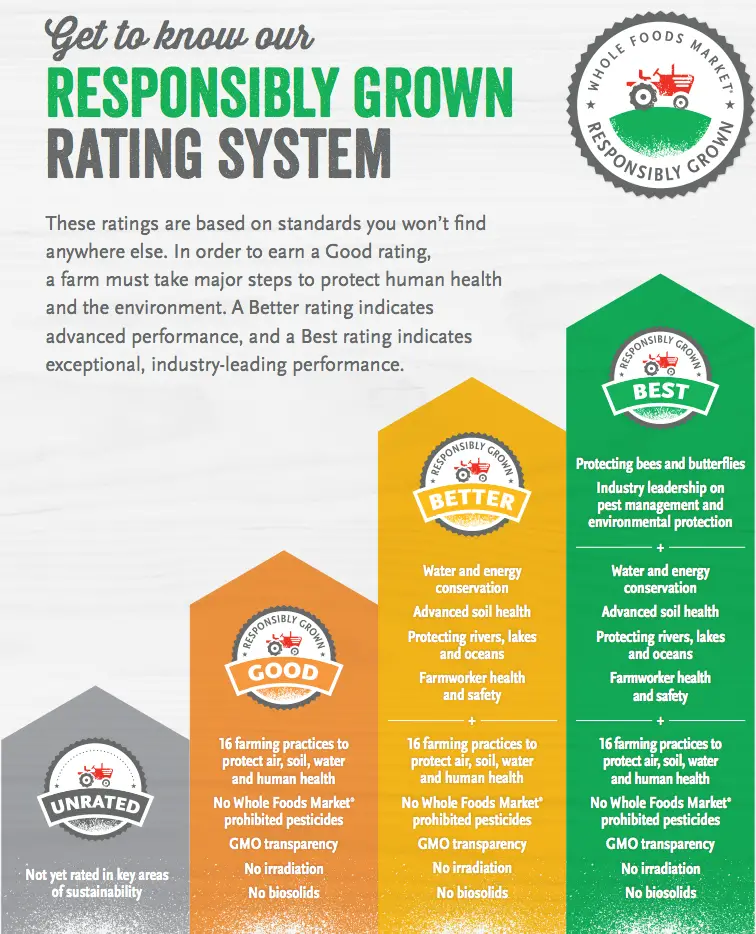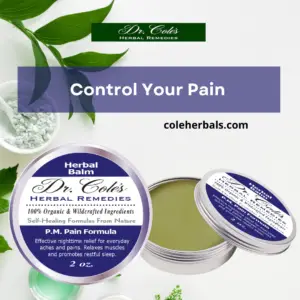Whole Foods has become one of the fastest growing companies in America by capitalizing on the growing movement for food integrity (and GMO free food especially), but the company has been under increased scrutiny as of late.
A lawsuit over false “natural” labels in baked goods and an investigation into their sale of GMO-contaning foods under the “natural” umbrella have led many to question the high profile gourmet grocery chain, and to wonder about their commitment to transparency and whether they can be trusted to do the right thing.
Whole Foods will begin labeling all products containing GMOs in 2018, but in the meantime, they’ll be rolling out a new “produce rating system” aimed at “simplifying things for mainstream consumers.”
The new system, called “Responsibly Grown,” is the next evolution of its meat and seafood ratings systems, and it began on Oct. 16.
Here’s what you should know in time for your next shopping trip.
What Do the New Whole Foods Produce Ratings Mean?
The new produce rating system at Whole Foods incorporates all of the current certification problems ranging from organic to Fair Trade Certified.
Three ratings will be offered to customers for fruits and vegetables: Good, Better or Best.
Other factors include soil health, air pollution, waste reduction, workers’ welfare, pesticide use and more.
Currently about half of all produce in Whole Foods has garnered ‘Responsibly Grown’ ratings and more are being added every day.
Examples of what produce might obtain what ranking can be found below (see graphic courtesy of Whole Foods):
Should We Trust New Whole Foods Labels?
The new ‘Responsibly Grown’ program holds a great deal of promise, especially for consumers who know that what we can’t see can often make a dramatic difference in the nutrition of our food, as well as how it affects the environment. It also may give existing producers more incentive to strive for better quality.
But it also begs the question, why do we have to wait until 2018 to get labels on products containing GMOs while Whole Foods implements this elaborate system in a fraction of the time?
Beyond that, it’s also important to note that even organic-focused companies are capable of abusing our trust when we get careless, so don’t be afraid to do your own research if and keep holding companies accountable for their promises.
Do you think the new Whole Foods labeling system will catch on? Let us know in the comments below. You can also subscribe to our newsletter here.
Thanks for installing the Bottom of every post plugin by Corey Salzano. Contact me if you need custom WordPress plugins or website design.






